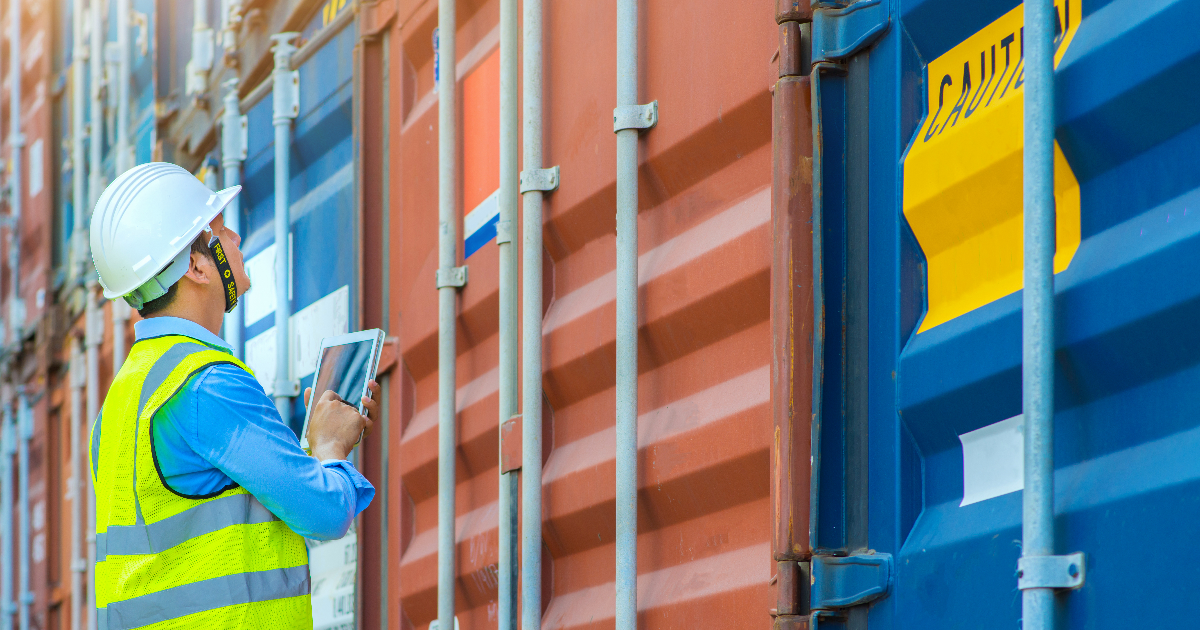Logistics digitalisation strategy circulated for comments

The project on a logistics digitalisation strategy prepared by the Ministry of Transport and Communications is being sent for comments. The aim of the project is to support and strengthen the development of digitalisation in the logistics sector towards efficient and sustainable logistics. To support the strategy, a climate study on the digitalisation of logistics was also carried out. Comments can be submitted until 19 August 2020.
Better use of information as the aim
The logistics digitalisation strategy would define a vision, goals and measures needed to strengthen the development of the digitalisation of logistics. The strategy would take account of the efficiency, functionality and security benefits achieved through digitalisation, as well as the climate impact. The strategy would support the objectives of both the twelve-year National Transport System Plan (Liikenne12) and fossil-free transport.
The vision of the strategy would be to promote digitalisation towards efficient and sustainable logistics. For the vision, the strategy would have identified three key objectives and the measures to achieve them.
The first goal of the strategy would be to develop information management and utilisation throughout the transport chain. The measures would aim at high-quality and real-time digital communication between different activities.
The second objective would be to develop, in particular, the knowledge base and game rules so that operators would have a genuine opportunity to make use of their own data. The new operating models would create a level playing field for companies of different sizes and positions and would promote the use of digital information in the logistics chain.
The third objective would be to increase the opportunities of citizens and businesses to influence their own carbon footprint through better access to information.
Preliminary measures would include the development of a logistics information environment, enabling legislation, the development of access to statistical and monitoring information, funding and piloting, optimised equipment and capacity for urban logistics, as well as cooperation to achieve the objectives.
Towards sustainable logistics
With regard to transport, the Government Programme aims to halve the greenhouse gas emissions of domestic transport by 2030 and achieve zero emissions from transport by 2045. For this reason, there has also been the wish to examine the climate impact of logistics and the ways of making it more efficient. To support the review of the effectiveness of the logistics digitalisation strategy, a climate study on the digitalisation of logistics has been carried out. The work evaluated the emission reduction potential of logistics digitalisation and the means of reducing emissions.
According to the study, changes in transport volumes and transport distances have the greatest impact on emissions from logistics. The most significant emission reductions in the logistics sector will continue to be achieved through changes in the CO2 content of fuels. The benefits of digitalisation are particularly evident at the level of the transport system as logistics becomes more efficient. The climate benefits of digitalisation will be emphasised in the longer term, and by combining different means.
The study states that the development is largely influenced by changes in trade and industry, such as the decentralisation of the regional structure and the growth of e-commerce. It is not yet possible to assess the long-term effects of the coronavirus crisis, but the effects have been particularly visible in international transport chains. With the growth of e-commerce during the coronavirus, the decline in freight logistics has been smaller in cities. It is expected that demand for digital platforms and customised services will continue to grow.
Why is the strategy being prepared?
On 20 August 2019, the Ministry of Transport and Communications launched a project to prepare a logistics digitalisation strategy. The project implements the goals of the Government Programme for digitalised and carbon-free transport. In addition, the project is related to the roadmap for fossil-free transport, the ICT climate and environment strategy and the Liikenne12 project.
The strategy utilises the feedback and comments received - in spring 2019 - on the plan to implement the resolution made to strengthen the digitalisation of logistics, the transport sector and ports.
What next?
Comments are requested by 19 August 2020. All organisations and individuals can submit comments. The call for comments has been published at www.lausuntopalvelu.fi. Once the rounds for comments have been completed, public servants will continue the preparation of the strategy.
The aim is for the strategy to be completed and the work to proceed into a government resolution in autumn 2020.
Inquiries:
Director of Unit Maria Rautavirta, tel. +358 40 7185975, Twitter: @mrautavirta
Special Advisor Noora Lähde, tel. +358 45 2222 017, Twitter: @NooraLahde
Logistiikan digitalisaation ilmastovaikutuksia koskeva selvitys
Lausuntopalvelu.fi: Luonnos logistiikan digitalisaatiostrategiasta
Hankeikkuna: Logistiikan digitalisaatiostrategia



